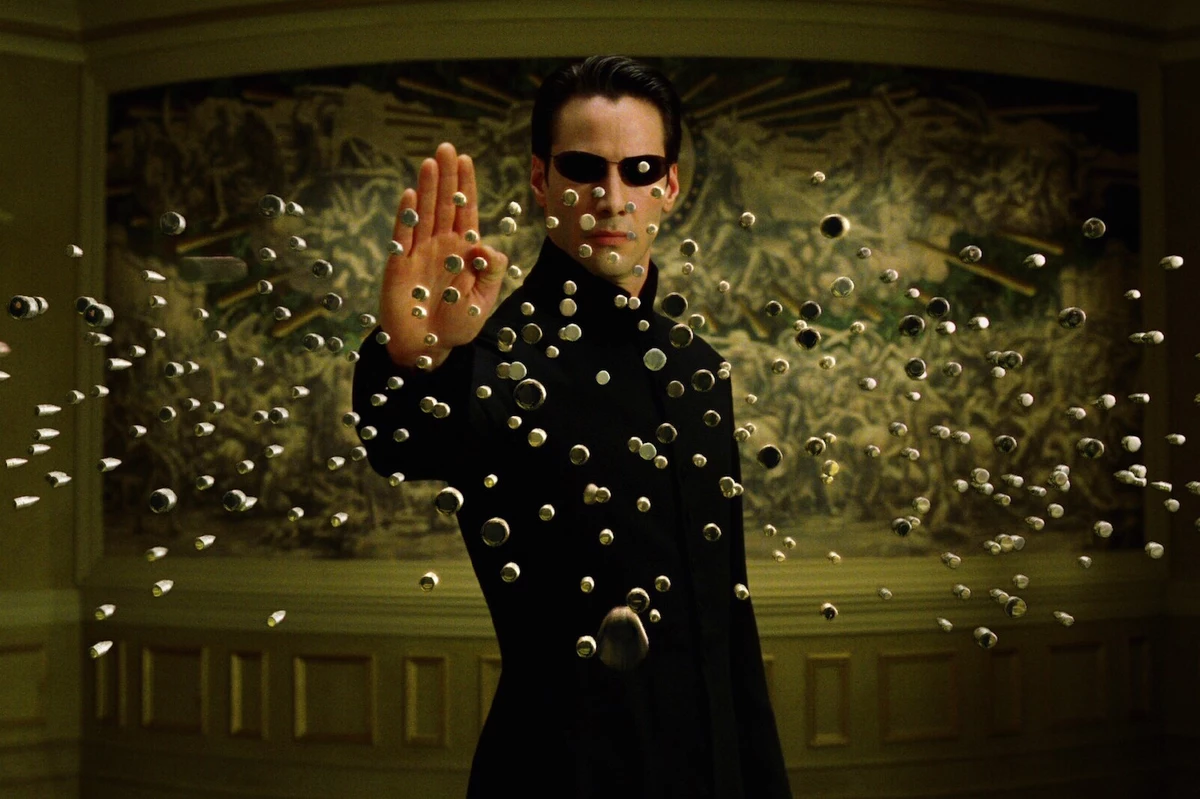"The Matrix" and how it changed our entire world(or simulation)
Most people have seen at least one of the "Matrix" movies. Overall, the movies that arguably launched Keanu Reeves into stardom have long been perceived as one of the best science fiction movie franchises of all time, with the overall plot questioning reality and instilling this idea of a "simulation" in the minds of the audience. Although all this is true, I am here today to tell you that “The Matrix” series has had a much bigger impact than originally thought. Overall, I read through three different articles that all argued that “The Matrix” franchise has had a profound effect on society and film. The first article that I read was written by Alex Blazer and published for “Literature-Film Quarterly”. In his writing, Blazer discusses how each of the films in the franchise changed the world’s perception of “symbolic” and “real”. Blazer argues that “The Matrix” franchise was one of the first franchises to accurately portray the theme of “existential psychoanalysis” and that these films allowed fans to truly explore the ideas of “Imaginary, Symbolic, and Real”. Another article written by David Gunkel argues the same idea, stating that “This apparent conflict between the real and the virtual, and the various considerations it entails, is perhaps best dramatized in a pivotal scene from The Matrix”. In his writing, Gunkel argues that “The Matrix” not only influenced society, but also instilled this idea of “conflict between the real and the virtual” in society’s culture as well. In recent years, we have seen many celebrities and scientists come out in support of the “simulation theory”, most notably SpaceX founder Elon Musk. The “simulation theory” has become a staple of culture, with many believing that the possibility we aren’t in a simulation is extremely unlikely. “The Matrix” was one of the first science fiction movies to explore this uncertainty, leading to a large impact on its viewers and the development of this “simulation theory”. Although the idea of a simulation has been around for a very long time, “The Matrix” popularized the idea and changed the culture around our existence. Although most fans don’t watch movies to explore deep philosophical themes, “The Matrix” franchise was revolutionary as it wound through this curling path of psychoanalysis, ultimately changing the way society viewed common constructs such as “real” and “imaginary”.
As I stated, “The Matrix” franchise had a profound impact on many different aspects of our world, including film. The second article I read was written by Mark Salisbury and published on the website BFI.org. The BFI is “the United Kingdom’s leading organization for film, cinema, and the moving image”(BFI.org). Overall, Salisbury argues that “The Matrix” revolutionized the science fiction film industry, largely due to the work of the Wachowski’s. The Wachowski’s were the directors of the film and, according to Salisbury, “created a revolution in sci-fi action and visual effects that reshaped blockbusters for the 21st century”. In his article, Salisbury mentions key aspects of the filming process that can be attributed to why it is considered so revolutionary, including the fact that the Wachowski’s required most of their cast to do their own stunts, experimented with the “bullet-time effect” that allowed for Keanu Reeve’s character of Neo to seemingly slow down time while dodging bullets, and their notoriously high expectations. Salisbury also mentioned how the Wachowski’s made Keanu Reeves read multiple philosophical novels before he even was allowed to open the script. When you combine these various expectations and performances, along with the experimental film techniques, “The Matrix” became one of the best science fiction movies ever produced. Overall, “The Matrix” revolutionized science fiction movies, enhancing the way they were filmed and setting the standard for modern day science fiction thrillers.
Today, I have discussed how “The Matrix” and its franchise revolutionized film and had a profound impact on our society. Overall, I hope this article was very interesting to you and I encourage you to read some of my other peers’ articles. Thanks for reading!
-Ben Trusiak
Works Cited
Blazer, Alex E. "The Matrix trilogy and the revolutionary drive through 'the desert of the real'." Literature-Film Quarterly, vol. 35, no. 4, 2007, p. 265+. Gale In Context: High School, link.gale.com/apps/doc/A171773951/GPS?u=umn_wilson&sid=GPS&xid=4af10f78. Accessed 8 May 2021.
Gunkel, David J. "The Virtual Dialectic: Rethinking: The Matrix and its Significance." Configurations, vol. 14, no. 3, 2006, pp. 193-215,307. ProQuest, http://login.ezproxy.lib.umn.edu/login?url=https://www-proquest-com.ezp2.lib.umn.edu/scholarly-journals/virtual-dialectic-rethinking-matrix-significance/docview/217776603/se-2?accountid=14586.
Salisbury, Mark. “The Matrix at 20: How the Wachowskis Changed Sci-Fi.” British Film Institute, BFI, 27 Mar. 2019, www2.bfi.org.uk/news-opinion/news-bfi/features/matrix-wachowskis-keanu-reeves.



Comments
Post a Comment